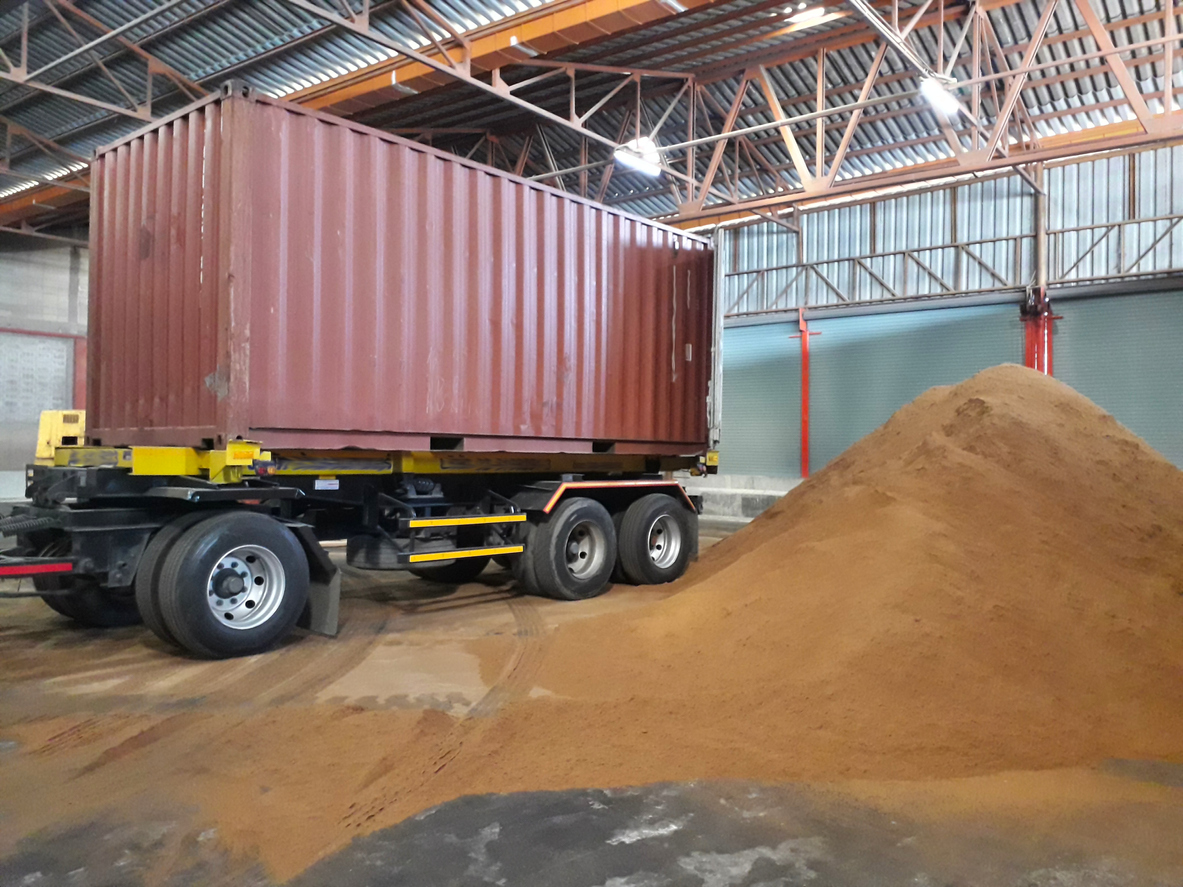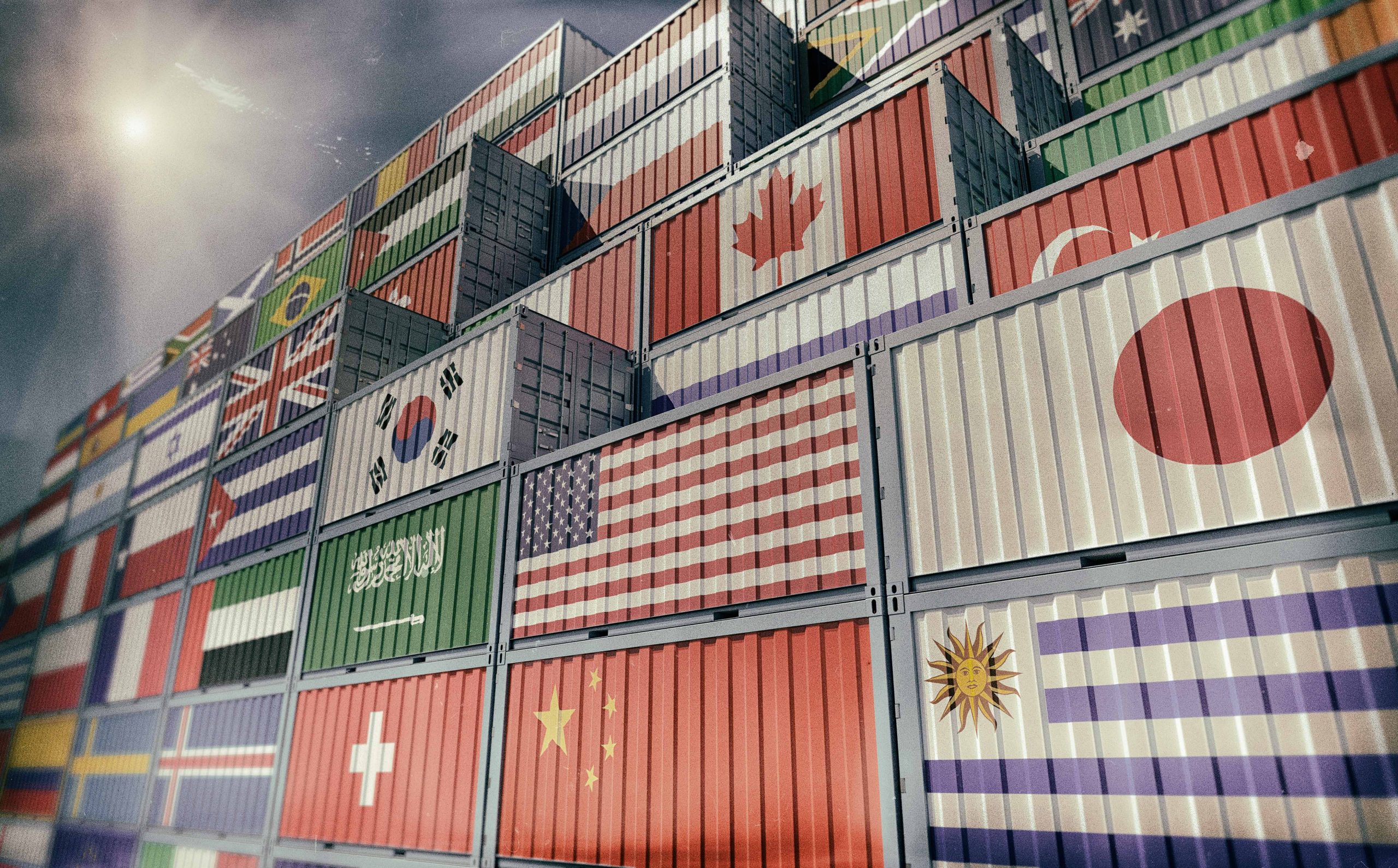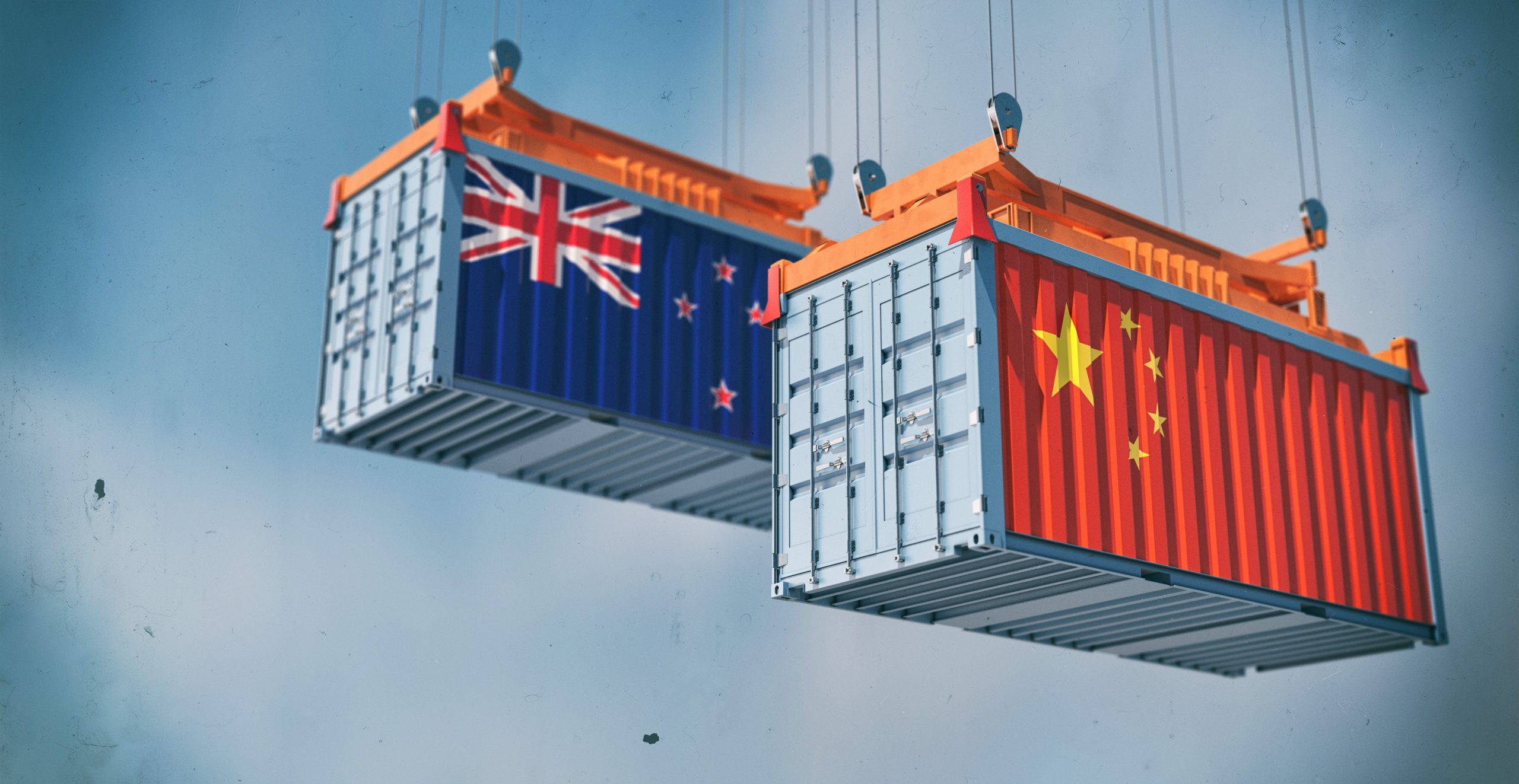From Nigeria to the World: How to Build a Profitable Import/Export Venture without Falling into These 14 Traps
From Nigeria to the World: How to Build a Profitable Import/Export Venture without Falling into These 14 Traps
Are you ready to take your business from Nigeria to the world? Building a profitable import/export venture is an exciting opportunity that can bring immense success. However, navigating this intricate landscape requires careful planning and avoiding potential pitfalls along the way. In this blog post, we will guide you through 14 common traps that many entrepreneurs fall into when venturing into the import/export industry. Get ready to unleash your business’s full potential without stumbling on these obstacles – let’s turn your dreams of global trade into a thriving reality!
Introduction to Import/Export Business
Import and export business refers to the buying and selling of goods or services between countries. This type of trade has been an integral part of global commerce for centuries, allowing businesses to expand their reach and tap into new markets. In today’s interconnected world, import and export have become more accessible than ever before, with technological advancements making it easier to connect with potential trading partners from different parts of the world.
The import/export industry is a lucrative venture that has the potential to generate significant profits for individuals or companies involved. However, like any other business, it also comes with its share of challenges and pitfalls that can hinder success if not managed properly. In this section, we will provide you with a comprehensive introduction to the import/export business, including its benefits, risks, key players in the industry, and essential tips for building a profitable venture.
Benefits of Import/Export Business:
One of the main advantages of engaging in import/export business is the opportunity it presents for businesses to diversify their revenue streams. By importing goods from one country and exporting them to another where there is high demand or less competition, businesses can take advantage of price differences and make substantial profits.
Moreover, import/export trade allows businesses to access a wider range of products at competitive prices than what may be available locally. This enables them to offer unique products that are not easily found in their home country and cater to niche markets.
Additionally, by participating in global trade activities such as international conferences or exhibitions related to your target market’s industries or
Benefits of Import/Export Business in Nigeria and Worldwide
Import/export business is a thriving industry in Nigeria, with the country being one of the top exporters of oil, agricultural products, and other commodities in Africa. The import/export industry offers numerous benefits not just for Nigeria but also for businesses worldwide. In this section, we will delve into some of the key advantages of engaging in import/export business in Nigeria and its impact on the global market.
1. Boosts Economic Growth and Development:
One of the major benefits of import/export business in Nigeria is its contribution to economic growth and development. As an emerging economy with abundant natural resources, exporting these goods can bring in significant revenue for the country. It also creates job opportunities as more people are needed to produce and package these goods for exportation. Importing goods that are not locally produced also helps meet domestic demand and reduces shortages.
2. Diversifies Sources of Income:
The import/export business allows Nigerian entrepreneurs to explore new markets beyond their local ones. This diversification reduces their dependency on a single market or product, making them less vulnerable to fluctuations or economic downturns in their home country’s market. This way, they can maximize profits by tapping into different markets worldwide.
3. Access to High-Quality Goods at Lower Cost:
Through exportation, Nigerian businesses gain access to high-quality goods from other countries that may not be available domestically or are too expensive to produce locally.
14 Common Pitfalls to Avoid in the Import/Export Industry
The import/export industry can be a lucrative and exciting venture, but it is not without its challenges. As with any business, there are common pitfalls that entrepreneurs in this industry need to avoid in order to build a successful and profitable venture. In this section, we will discuss some of the most common pitfalls that import/export businesses fall into and provide tips on how to avoid them.
1. Lack of Market Research
One of the biggest mistakes that import/export businesses make is jumping into the market without conducting thorough market research. It is crucial to understand your target market, their needs, preferences, and buying behaviors before importing or exporting any products. Without proper market research, you run the risk of entering a saturated market or offering products that do not appeal to your target audience.
To avoid this pitfall, take the time to thoroughly research your potential markets before making any business decisions. This can involve studying consumer trends, analyzing competitors’ strategies, and understanding cultural differences that may affect your product’s success in different markets.
2. Not Understanding Import/Export Regulations
Another common pitfall for newcomers in the import/export industry is not having a clear understanding of regulations and laws related to international trade. Each country has its own set of rules and regulations regarding imports and exports. Failure to comply with these regulations can result in costly fines or even legal consequences.
To avoid this pitfall, it is essential to work with experienced customs brokers or consultants who have knowledge about import/export laws and regulations in different countries. It may also be helpful to seek advice from trade associations or government agencies that specialize in international trade.
3. Poor Financial Management
Managing finances is a crucial aspect of any business, and the import/export industry is no exception. Many businesses struggle due to poor financial management, such as not keeping track of expenses, failing to budget properly, or not having enough cash flow to sustain operations.
To avoid this pitfall, it is important to have a solid financial plan in place before starting your import/export business. This includes creating a budget, setting aside funds for unforeseen expenses, and regularly tracking and reviewing your finances.
4. Not Diversifying Your Product Portfolio
Relying on one product or market can be risky in the import/export industry. Changes in consumer demand, supply chain disruptions, or economic downturns can significantly impact your business if you do not have a diverse product portfolio.
To avoid this pitfall, it is important to diversify your offerings by importing/exporting multiple products or targeting different markets. This can help mitigate risk and provide opportunities for growth.
5. Inadequate Insurance Coverage
Import/export businesses are exposed to various risks, such as damaged goods during transit or delays in delivery. Without proper insurance coverage, these risks can result in significant financial losses.
To avoid this pitfall, make sure to have adequate insurance coverage for your import/export business. Consult with an insurance professional who specializes in international trade to determine the best coverage options for your business.
6. Poor Communication with Suppliers and Customers
Effective communication is crucial in any business, but it is especially important in the import/export industry where you are dealing with suppliers and customers from different countries and cultures. Misunderstandings or lack of communication can lead to delays, mistakes, and ultimately damage your business’s reputation.
To avoid this pitfall, establish clear communication channels with your suppliers and customers. This can include using translation services if necessary and setting expectations for response times.
7. Neglecting Quality Control
Import/export businesses are responsible for ensuring that the products they import or export meet quality standards. Failing to conduct proper quality control can result in receiving faulty products or shipping out subpar goods, which can damage your business’s reputation.
To avoid this pitfall, make sure to work with reputable suppliers and perform regular quality checks on all imported or exported goods.
8. Overlooking Cultural Differences
Cultural differences can significantly impact how businesses operate in different markets. Ignoring these differences or failing to understand them can result in misunderstand ings, miscommunications, and unsuccessful business deals.
To avoid this pitfall, take the time to research and understand cultural norms and customs in your target markets. This can help you build better relationships with suppliers and customers and increase the chances of success in those markets.
9. Not Having a Strong Network
Having a strong network is essential in the import/export industry. It can provide valuable connections, resources, and opportunities for growth. Neglecting to build a network can limit your business’s potential for success.
To avoid this pitfall, attend trade shows, join trade associations, and actively seek out networking opportunities within your industry.
10. Undervaluing or Overpricing Products
Pricing products at an unreasonable rate can result in lost sales or decreased profit margins. On the other hand, undervaluing products may lead to financial losses or damage your brand’s image.
To avoid these pitfalls, conduct market research to determine competitive pricing for your products. Additionally, consider factors such as production costs, transportation fees, and import/export duties when setting prices.
11. Lack of Flexibility
The import/export industry is constantly evolving and subject to changes in regulations, consumer demand, and economic conditions. Businesses that are not adaptable or flexible may struggle to keep up with these changes, leading to missed opportunities or failures.
To avoid this pitfall, be open to adapting your business strategies and processes to keep up with industry developments.
12. Not Understanding Payment Terms
Payment terms can vary greatly in the import/export industry, and failing to understand them can result in financial losses. For example, some suppliers may require payment upfront, while others may offer credit terms.
To avoid this pitfall, make sure to clearly communicate and understand payment terms with your suppliers before entering into any agreements.
13. Failing to Plan for Customs Delays
Customs delays are common in international trade, and they can significantly impact your business’s operations and finances. Failing to plan for these delays can lead to missed deadlines, increased transportation costs, and unhappy customers.
To avoid this pitfall, build extra time into your delivery timelines and have contingency plans in place if customs delays occur.
14. Lack of Differentiation from Competitors
In a competitive import/export market, it is important to differentiate your business from competitors. Failing to do so can result in losing customers or struggling to stand out among other businesses.
– Lack of Market Research
One of the biggest mistakes that new import/export businesses make is not conducting enough market research. Without a proper understanding of the market and its needs, it is easy to fall into traps that can negatively impact your business’s profitability and success. In this section, we will discuss the importance of market research and how to avoid the pitfalls associated with a lack of it.
Import/export businesses need to have a solid understanding of their target market in order to be successful. This includes knowing the demand for your product or service, identifying potential competitors, and understanding cultural differences that may affect your business dealings. Failure to conduct thorough market research can lead to a number of issues that can hinder your venture’s growth.
Firstly, inadequate market research can result in importing or exporting products that are not in high demand in the target market. This means you could end up with excess inventory that takes longer to sell, tying up your capital and decreasing profits. On the other hand, exporting products without researching their demand can result in low sales and wasted resources.
Another common pitfall is failing to identify potential competitors in your target market. Competitor analysis allows you to understand what similar products or services are available, their pricing strategies, and marketing tactics. Without this information, you risk entering a saturated market where it may be difficult to gain a competitive edge.
Cultural differences also play an important role in import/export ventures. Not taking these differences into consideration can lead to misunderstandings and miscommunications with clients or suppliers from different countries.
– Insufficient Funds or Poor Financial Management
1. – Insufficient Funds or Poor Financial Management
One of the biggest challenges faced by import/export businesses is insufficient funds or poor financial management. This can be a major roadblock in building a profitable venture and can lead to serious consequences such as bankruptcy, closure of the business, and legal issues.
Insufficient funds are often a result of not having enough capital to start or sustain the business, while poor financial management refers to mismanagement of funds and lack of proper budgeting and planning.
To avoid falling into this trap, here are some key factors to consider:
1. Start with a solid business plan: A well-researched and detailed business plan is crucial for any import/export venture. It should include projected expenses, revenue forecasts, target market analysis, marketing strategies, and contingency plans. This will help you have a clear understanding of your finances and make informed decisions.
2. Secure enough capital: Lack of sufficient funds is one of the main reasons why many import/export businesses fail. It’s important to have enough capital not only for starting the business but also for sustaining it during the initial stages when you may not see immediate profits. Consider alternative sources such as loans from banks or investors if needed.
3. Keep track of your finances: It’s essential to keep track of all your expenses and revenues on a regular basis. This will help you identify areas where you can cut costs and improve efficiency in your operations.
– Not Obtaining Necessary Licenses and Permits
One of the most common mistakes that many import/export entrepreneurs make is not obtaining the necessary licenses and permits. This can lead to serious legal consequences, delays in shipments, and financial losses. In this section, we will discuss the importance of obtaining all the required licenses and permits for your import/export venture.
Firstly, it is important to understand that every country has its own set of laws and regulations governing imports and exports. These laws are in place to protect domestic industries, ensure fair trade practices, and maintain national security. Therefore, it is crucial to research and understand the specific requirements for your desired export or import destination.
Some of the commonly required documents include import/export licenses, customs permits, product-specific certifications (such as phytosanitary certificates for agricultural products), and business registration documents. The process of obtaining these licenses may vary from country to country but usually involves submitting an application with supporting documents to the relevant government agency.
Failing to obtain these licenses can result in serious legal consequences such as fines, seizure of goods, or even imprisonment in some cases. It is important to note that ignorance of these laws is not a valid excuse and will not protect you from facing penalties.
Moreover, not having the necessary licenses can also cause significant delays in your shipments. Customs officials at ports have strict protocols in place when it comes to verifying imports/exports. If you do not have all the required documentation, your shipment may be held up for inspection or even rejected altogether. This can result in missed
– Ignoring Cultural Differences and Customs Regulations
When it comes to building an import/export venture, one of the biggest mistakes that entrepreneurs can make is ignoring cultural differences and customs regulations. In today’s globalized world, conducting business with other countries is becoming increasingly common, but it is crucial to understand and respect the cultural norms and regulations of each country in order to build a successful venture.
One of the first things you should do before starting your import/export business is to research and familiarize yourself with the culture and customs regulations of the countries you will be doing business with. This includes understanding their social norms, values, communication styles, and business etiquette. For example, some cultures may place a high value on punctuality while others may have a more relaxed approach to timekeeping. Being aware of these nuances can help you navigate interactions with potential partners or clients more effectively.
Another important aspect to consider when it comes to cultural differences is language barriers. It’s essential to have a good understanding of the local language or work with a translator who can accurately interpret conversations and documents for you. Miscommunications due to language barriers can lead to misunderstandings that could potentially harm your business relationships.
In addition to cultural differences, it’s crucial to understand and comply with customs regulations when importing or exporting goods. Each country has its own set of laws and procedures for importing goods, which can vary depending on factors such as the type of product being imported or exported, its value, and where it is coming from or going to. Ignoring these regulations can result in costly
– Poor Communication with Suppliers, Buyers, and Government Agencies
Poor communication is one of the major challenges faced by import/export ventures, especially in developing countries like Nigeria. In this section, we will discuss the impact of poor communication with suppliers, buyers, and government agencies on your import/export venture and provide tips on how to overcome these challenges.
1. Difficulty in Sourcing Quality Products: One of the key factors that determine the success of an import/export business is the quality of products being traded. However, poor communication with suppliers can lead to misunderstandings about product specifications and requirements. This can result in receiving substandard or different products than what was originally agreed upon, leading to loss of credibility and potential customers.
To avoid this pitfall, it is essential to establish clear channels of communication with your suppliers from the start. Clearly outline your expectations and requirements for products and maintain regular communication throughout the process. Utilizing technology such as video calls or instant messaging platforms can also help bridge any language barriers.
2. Delayed Shipments: Another consequence of poor communication with suppliers is delayed shipments. Misunderstandings or lack of proper communication can lead to delays in product delivery, which may result in financial losses for both parties involved.
To prevent shipment delays, it is crucial to establish a system for tracking orders and monitoring progress updates from your supplier regularly. Additionally, ensure that all parties involved are aware of shipping timelines and deadlines to avoid any miscommunication.
– Underestimating Logistics and Shipping Costs
Importing and exporting goods from Nigeria to the rest of the world can be a highly lucrative venture, but it is not without its challenges. One common trap that many aspiring import/export entrepreneurs fall into is underestimating logistics and shipping costs. These costs can quickly add up and significantly impact the profitability of your business if not carefully managed.
Logistics refers to the process of planning, implementing, and controlling the movement of goods from one place to another. This includes sourcing products, warehousing, packaging, transportation, and delivery. Shipping costs, on the other hand, refer specifically to the expenses incurred for transporting goods from one location to another.
Underestimating these costs can happen in various ways:
1. Failure to research shipping rates: Before starting an import/export business, it is crucial to thoroughly research shipping rates for different modes of transportation (air freight vs sea freight) as well as different carriers. Many new entrepreneurs make the mistake of relying on a single carrier or mode of transport without exploring all available options.
2. Not factoring in additional fees: Apart from actual shipping charges, there are often additional fees involved in international trade such as customs duties, port charges, insurance fees, and handling fees at destination ports. These fees can vary greatly depending on factors such as country-specific regulations and current market conditions.
3. Poorly estimating packaging costs: Packaging plays a crucial role in protecting your goods during transit. However, it can also be a significant expense if not planned properly.
–
1. – Understanding the Importance of Market Research:
Market research is a crucial step in building any successful import/export venture. It involves collecting and analyzing information about potential markets, competitors, and consumer behavior to make informed business decisions. Without proper market research, you may end up making costly mistakes such as entering into an oversaturated market or choosing the wrong products to import or export.
To avoid falling into this trap, it is essential to conduct thorough market research before starting your import/export business. This can involve studying trade statistics, researching the target country’s economy and culture, identifying potential suppliers and buyers, and understanding their needs and preferences. This will enable you to tailor your products or services according to demand and stay ahead of competitors.
Moreover, market research also helps identify potential risks and challenges that may arise in the target market. For instance, political instability or changing regulations could significantly impact your business operations. By conducting thorough research beforehand, you can develop contingency plans to mitigate these risks and ensure smooth operations for your import/export venture.
2. – Building Strong Relationships with Suppliers:
In the import/export business, having reliable suppliers is critical for maintaining a steady supply of quality products at competitive prices. However, many new entrepreneurs fall into the trap of solely focusing on finding low-cost suppliers without considering other important factors such as product quality and reliability.








Comments are closed.